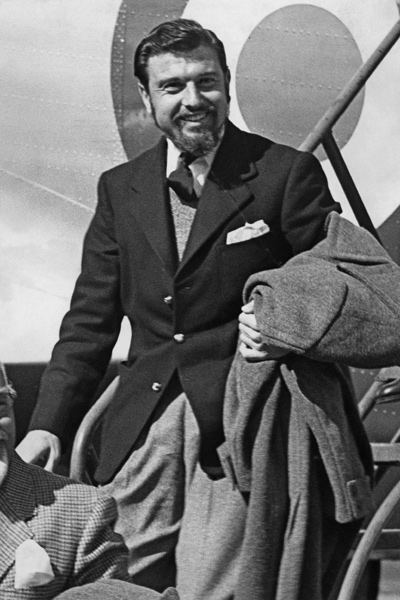The spy George Blake, doyen of traitors, turned 90 last year. Almost blind, he lives with his Russian wife outside Moscow on an SVR (KGB in old money) reservation. Much has changed since 1961 when he was sentenced to 42 years in British jails — the ideology he believed in discredited, the empire he spied for dismembered — but he remains convinced he was right to betray, as this thorough and thoughtful biography shows.
Born in Holland to a Dutch mother and a father of Jewish-Egyptian heritage and British nationality, he was never quite sure where he belonged. He was sure, though, that belief mattered; although attracted by Marxism, he put religion first and nearly became a pastor in the Dutch Reformed Church. Hitler spared him that by invading Holland and the young Blake became a courageous courier in the Dutch Resistance. Following brief imprisonment, he made his way via France and Spain to Britain, where he was recruited into MI6. After the war he was posted to Seoul as head of the MI6 station. There the trouble began.
The ground was already well fertilised. His rootlessness, his early enthusiasm for communism — paradoxically deepened under the tutelage of an MI6 authority on the subject — his admiration for Russian literature and (in the opinion of his British wife) his rejection by a well-connected MI6 secretary, hardened his perception of Britain as class-ridden and of himself as one who was ‘above nationality. I don’t approve of national feelings.’ The corruption and poverty he witnessed under the US-supported Korean government also made him anti-American. A dressing-down by a senior MI6 officer who concluded, ‘He doesn’t belong in the Service,’ (and who may also have been anti-Semitic) meant that when the North Koreans invaded Blake was probably in a vulnerable state of mind.
He endured three years of harsh captivity and beatings with courage and stoicism, earning the admiration of colleagues and twice attempting to escape. But the undisciplined behaviour of American prisoners reinforced his anti-Americanism to the extent that he viewed their murders by Korean guards as acts of mercy.
What happened next is disputed. According to Blake’s autobiography, approved by his Russian hosts, he volunteered his services to the KGB via the North Koreans. But Roger Hermiston quotes Russian sources as saying that he was recruited by a gifted KGB officer, Nikolai Loenko. Known later as ‘Blake’s godfather’, Loenko toured the camps looking for agents and persuaded Blake that the goals of the Soviet Union and Christianity were similar. Half a century later, Blake travelled from Moscow to Vladivostok to lay flowers on his grave.
He spied for the KGB for nine and a half years, most famously blowing the Berlin tunnel, an operation against Soviet communications which yielded, despite his efforts, masses of genuine intelligence before the Russians closed it. Less well known, but perhaps reflected in his lengthy sentence, he sent an unknown number of agents to their deaths.
The permanent risk for any spy is another spy and Blake’s unmasking was due to two. One, code-named Sniper, was a senior official in Polish intelligence who spied for the Americans Blake so hated. The other was a more minor figure who spied for everyone, including the Russians and the British; his revelation that the KGB bugged his conversations only after he ceased meeting Blake proved key to the investigation — they had no need to bug him before because Blake was reporting back.
Blake was politely and very thoroughly interrogated for two days in MI6’s Carlton Gardens office. The account given here is understandably based on what he has written, though I believe there is within MI6 a recording which shows that neither the question that provoked his confession nor what followed was quite as he chooses to describe it.
The judge in the case, Lord Parker, whose unprecedented sentence of 42 years was regarded by many as excessive, had among his critics a quixotic rogue from Limerick and two peace campaigners, all fellow inmates. They arranged for Blake to escape the notoriously lax regime at Wormwood Scrubs and smuggled him to East Germany. (Scandalously, a sentimental jury later acquitted the peace campaigners of their self-confessed assistance.) Blake has since become something of a national treasure in Putin’s Russia, though he was from the start awarded higher honours than Philby or any of the other Cold War defectors.
Hermiston’s account is unlikely to be bettered, unless by someone given full access to British and Russian files. He makes good use of hitherto undisclosed material and seeks not only to describe but to understand, surely the biographical holy grail. Though few may regret the absence of academic apparatus, the book would nonetheless have benefited from more detailed attributions of some of the quotes and assertions.
Hermiston is right, however, to focus on the three big questions. Firstly, why did Blake do it? Hermiston shows that his reasons were, as nearly always in such cases, both political and personal; although it remains a puzzle as to why he felt excluded from a society and a service in which he was well treated and evidently well regarded. Secondly, how can he refuse to this day to accept that many he betrayed were executed? What did he think happened to Soviet spies caught in the deep Cold War — community service? Finally, if his ideological conversion was as pure as he asserts, why did he not resign and join the Communist party — or the Labour party, where there were many who thought like him? He was free to do that in Britain, yet he preferred to betray his family, his friends, his agents and his country in favour of a cause that refused everyone the freedoms he spurned. Was there, at the heart of his betrayal, a lust for power? His wife thought so. We’ll never know but Hermiston’s account gives us plenty to think about.






Comments